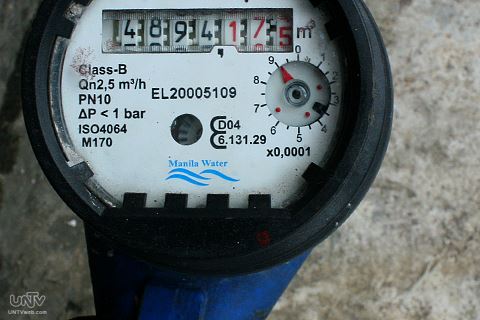Duterte threats do not solve water problem

PRESIDENT DUTERTE’S angry words make colorful copy but his claims misrepresent the issues involved in the imbroglio between government and the two water concessionaires servicing the greater Manila area.
Duterte threatened Manila Water and Maynilad with charges of “economic sabotage.” Speaking at the oath-taking of new government officials in Malacañang on the evening of December 3, the chief executive accused them of “screwing” Filipinos through contracts that are “milking” the public of billions of pesos.
Duterte raged against supposedly onerous provisions such as those that prevent the government from overseeing the setting of water consumption rates and allow the companies’ indemnification for possible losses if government intervenes.
Duterte’s tirade was triggered by the ruling of the Permanent Court of Arbitration in Singapore ordering the Philippine government to pay Manila Water PHP7.4 billion due to the non-implementation of its proposed rate hikes. The same court also ruled in favor of Maynilad in July 2017 and ordered the government to pay the company PHP3.4 billion.
It was not the first time that Duterte had railed against the water concessionaires. The president hit Manila Water and Maynilad in March at the height of the water shortage in Metro Manila. Most recently, in October, he threatened a government takeover of water services if the problem became worse.
But the case has been oversimplified by the president’s populist rhetoric. Coverage that hypes it paints the companies as greedy corporate giants with no real interest in providing water service; all the while boosting the president’s credentials as a champion of the people who is standing up to big business.
CMFR monitored reports on the issue from the three major broadsheets (the Manila Bulletin, the Philippine Daily Inquirer and The Philippine Star); four primetime newscasts (ABS-CBN 2’s TV Patrol, CNN Philippines’ News Night, GMA-7’s 24 Oras and TV5’s Aksyon); and selected news websites from December 3 to 11, 2019.
Much needed background
Making much of the president’s ire against the two companies misses the crucial point – that the contractual terms were signed by two previous administrations, Ramos’ and Arroyo’s, and that these do not expire until 2022.
Framed simply in black and white, news reports that highlighted the clash of interests did not capture how, more than two decades ago, the private companies stepped in because the government’s Metropolitan Waterworks and Sewerage System (MWSS), which used to provide the water service, had failed miserably. Government then did not have the resources that the two companies had to invest in infrastructure to modernize and improve the supply and distribution of water.
A decades-old issue
CMFR cheers Rappler for its two-part report which went into the intricacies involved. Both reports explored the risks and complications that had to be dealt with to address the water crisis in the 1990s, and points out that the existing contractual terms no longer address needs in the present situation.
Part 1 recalled that in 1997, President Fidel V. Ramos turned to the privatization of the water service due to the seemingly insurmountable difficulties confronting the MWSS. The government signed into law the National Water Crisis Act (RA 8041). The report also identified certain problematic provisions which were even then widely criticized.
Part 2 zeroed in on the complications brought about by the schemes implemented by the government, particularly the problematic rate adjustment system. Rappler explained that the system involves several factors and that the computation is a subjective process that officials have acknowledged.
But as the report pointed out, it was a government gambit to entice the private sector to take on the risks. Media should recall that for much of the time, the private companies did better than the old MWSS.
Ultimately, Rappler analyzed the problem as arising from these issues and how the agreements made then are already outdated. The deals were crafted during circumstances in the past that have since changed. As Rappler put it, the logic used then “has to be tested” in current conditions.
For more research-based reports
The media need to keep the water issue alive, as demand and supply change according to population growth and environmental conditions. Journalists must do more than just record what parties and personalities are saying – and reports on such technical matters require them to do research and consult with experts.
While the president is righteously angered by the onerous terms of the contracts, he should have earlier recognized that he cannot just rescind them. His administration needs to buckle down and negotiate new agreements more favorable to the public.
This process may not be as colorful; but the media needs to stick to it, tracking the difficulties involved. This is what this highly relevant story demands.
Leave a Reply